On the brink of war, Hezbollah is emboldened in a crippled Lebanon
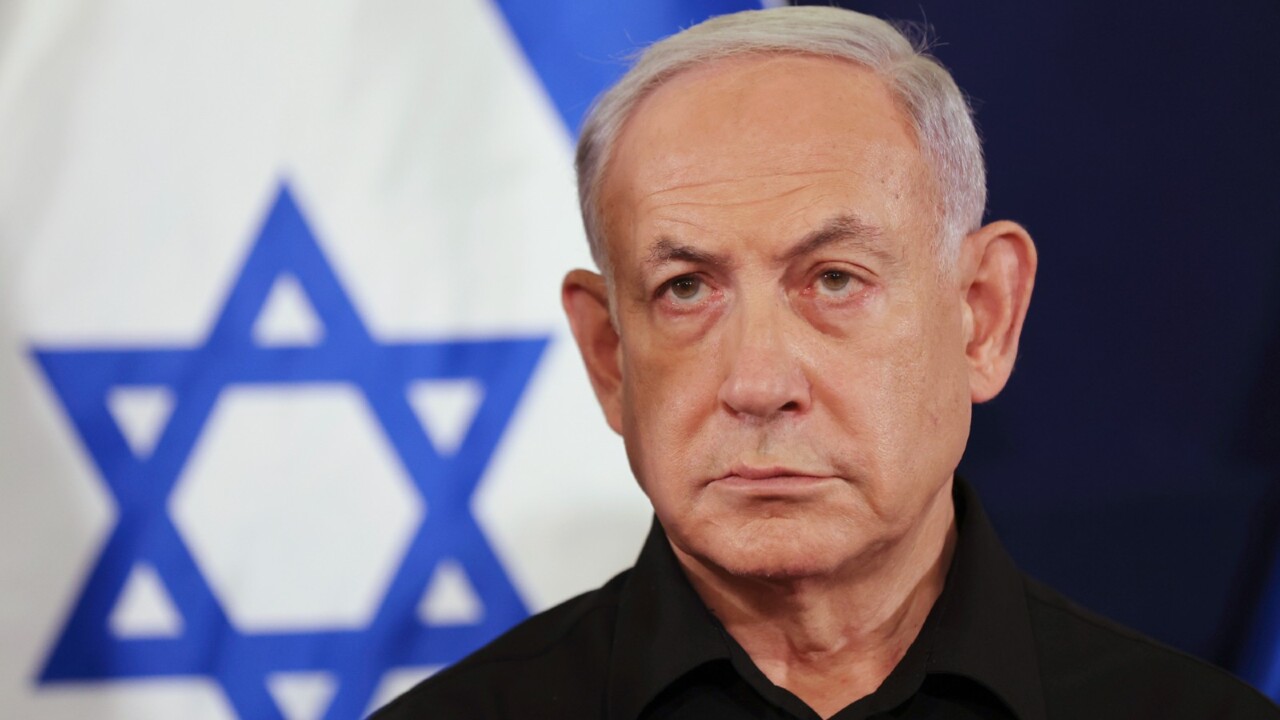
The reason: Hezbollah’s battle with Israel in what it bills as solidarity with Palestinians during the war in Gaza.
“Shiites are fighting for the Palestinian cause, while Sunni leaders across the Middle East are doing nothing,” Bahar said.
For years, Hezbollah built up political and military power in Lebanon over the objections of many of the country’s Sunni Muslims, Christians, Druze and other ethnic groups. Now, after Lebanon’s financial collapse ushered in years of political instability, the US-designated terrorist group is garnering support for its confrontational posture toward Israel – even as the fighting risks an all-out war that every major faction in the fractured country says it desperately wants to avoid.
The weekend rocket strike on a Druze-majority town in the Israel-controlled Golan Heights that killed 12 children shows how easily the country could be pulled closer toward a war. The killings set off a firestorm in Israel and domestic demands for a heavy retaliation, as diplomats led by the US rushed to head off a new spiral of conflict.
Israel and the US have accused Hezbollah of carrying out Saturday’s strike. Hezbollah said it had nothing to do with the deaths but had bragged about conducting a dozen attacks on Israeli military targets that day, including in that area.
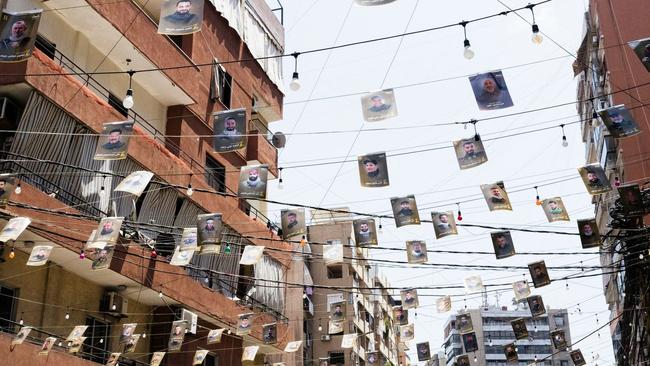
Hezbollah has the world’s best-armed nonstate militia and is by far the most powerful force in Lebanon, larger and more experienced than the country’s actual US-funded army. It holds seats in the country’s Parliament and controls swathes of Lebanese territory, where it is effectively in charge of security and social services. And Hezbollah now has fewer domestic political constraints, as many Lebanese turn their ire toward Israel and its war in Gaza.
“There is now no real opposition to the Hezbollah movement in Lebanon,” said Fares Souaid, former head of the March 14 Alliance, a defunct political coalition that included several Christian and Sunni parties opposed to the group.
Lebanese are constantly aware of the risk of another war in their small country, which has seen frequent fighting over the past 50 years. Bullet holes scar buildings in Beirut, a reminder of Lebanon’s past conflicts. Israeli military jets surging overhead warn of a new clash that could break out at any moment.
Support for Hezbollah’s confrontational approach could dissolve in a war. Most Lebanese Christians and Sunni Muslims don’t fully trust the group or think its involvement in regional politics is good for the Arab world, according to a survey conducted between February and April by research centre Arab Barometer. A more destructive conflict with Israel would likely deepen those divisions and could leave many Shiites angry with Hezbollah for dragging them into an unnecessary war.
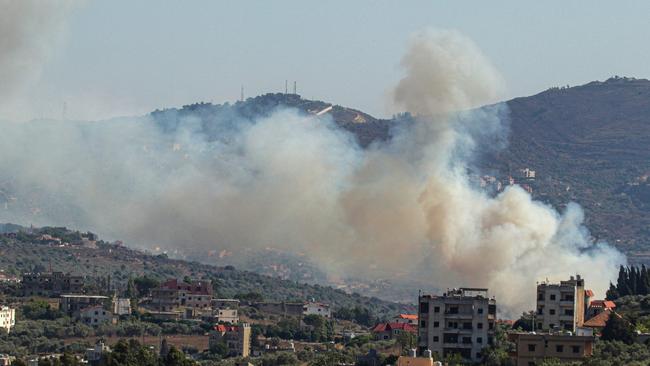
Israel and Hezbollah both say they want to avoid a war. Even so, it is a constant risk with their daily exchanges of fire, as each side pulls off more provocative attacks and as Israel comes under heavy internal pressure to eliminate threats to its northern towns.
Hezbollah began lobbing rockets across the border after the Hamas-led Oct. 7 attacks on southern Israel – that left around 1,200 people dead and took 250 people hostage, according to Israeli authorities – saying it was helping to defend Palestinians in Gaza. That position is popular in Lebanon, even among Sunni Muslims who would otherwise be at odds with Hezbollah’s Shiites.
Most Palestinians are Sunni Muslims, and Hamas, a militant group aligned with Hezbollah and also backed by Iran, is a Sunni Islamist group.
Hezbollah officials say their military operations are intended to pressure Israel into a ceasefire deal in the Gaza Strip, where health authorities say more than 39,000 people have been killed, mostly civilians, without saying how many were combatants. The group also wants to deter Israel from operating in Lebanon and to win the return of land captured by Israel in previous conflicts that it says belongs to Lebanon.
The group’s back and forth strikes with Israel have followed a broad logic. Most fire is exchanged within a narrow band of targets on either side of the border. When Israel kills an important member of the group – it has killed more than 300 Hezbollah operatives since Oct. 7 – Hezbollah responds with deeper strikes, bigger missiles or new technologies, such as a drone that fires missiles. It has also taunted Israel by publicly releasing drone-surveillance footage of military bases and targets in cities such as Haifa in northern Israel.
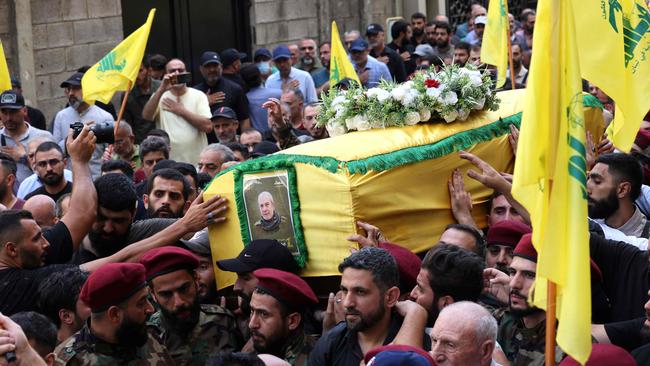
Two Hezbollah field commanders said that for months the militant group pulled many rank and file troops from Lebanon’s southern border, and rotated in specialised forces trained for more surgical operations. The idea was to conduct strikes without setting off a full-scale war, the commanders said.
With the exception of the strike on the soccer field, both sides have avoided heavy targeting of population centres and creating large numbers of civilian casualties. Israel hasn’t hit Hezbollah’s most senior leadership. The risk is one side or the other could miscalculate and set off a bigger conflagration.
“We are not in favour of an all-out war for many reasons,” Ibrahim Mousawi, a member of Lebanese parliament representing Hezbollah, said. “But if the Israelis do something that does necessitate a response, Hezbollah has made all the preparations needed for such a war.”
A war between Israel and Hezbollah would create levels of damage and civilian casualties in both countries, said Jonathan Conricus, a former Israeli officer who was a combat commander in Lebanon and, earlier in this war, a spokesman for the military.
Hezbollah would likely overwhelm Israeli air defences and target critical infrastructure such as ports and power plants while also attempting land incursions. Israel would be targeted by thousands of rockets a day and hundreds of people would be killed, Conricus said.
Israel would likely use heavy weaponry including precision-guided bombs but also less accurate weapons such as artillery to push Hezbollah from the front line, and would send ground troops into southern Lebanon, said Conricus, who is now a senior fellow with the Foundation for Defense of Democracies, a Washington think tank that promotes relations with Israel.
Israeli Defense Minister Yoav Gallant, who advocated attacking Hezbollah early in the war, told The Wall Street Journal that if necessary the military could “copy-paste” the destruction it has wrought in Gaza to Beirut. Gallant also pointed to Israel’s mid-July attack that set a Yemeni port ablaze as a warning to enemies elsewhere in the region.
“The numbers of casualties in Gaza will pale in comparison with the numbers we see in Lebanon if there is an all-out confrontation,” Conricus said.
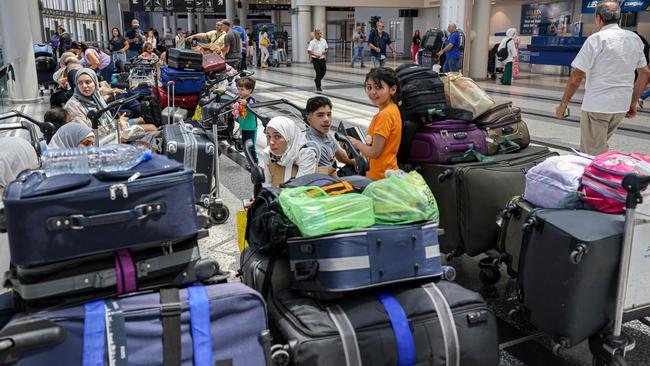
Much of southern Lebanon already feels like a war zone. Near-daily Israeli strikes have displaced about 100,000 Lebanese, caused severe damage to homes and infrastructure, and killed about 465 people including at least 100 civilians, according to the United Nations.
Mahmoud Reslan has been staying in a shelter after he and his children fled their home in Odaisseh, a village straddling the Lebanon-Israel border. He left in December as the area was bombarded and returned just once to check on his home.
“My house was destroyed, and the village was completely empty of the people and life that everyone there cherished and misses,” said Reslan, 51. “It will take me months to save up and rebuild my home whenever the war does end and I am able to work.” Tens of thousands of Israelis have also been displaced from northern Israel due to the fighting, which has destroyed some towns. At least 20 Israeli soldiers and 11 civilians have been killed as of July 22, according to Alma Research Education Center, a non-profit focusing on threats on Israel’s northern border.
Hezbollah emerged in the 1980s during the Lebanese civil war and an Israeli invasion that led to a multiyear occupation. The group has called for the destruction of Israel and has fought the state since its founding. Domestically, Hezbollah has advocated for historically marginalised Shiites and has provided social services neglected by a central government viewed as corrupt and ineffective, particularly during the continuing economic crisis.
With the help of Iran, the group has significantly increased its military capabilities in the last two decades, building up an army of about 100,000 fighters, amassing an arsenal of 150,000 rockets and missiles and some 2,500 drones and constructing extensive fortifications and tunnels along the border with Israel.
It now has the strength of a medium-size state army, militarily superior to Lebanon’s official armed forces, a former Lebanese military general said. “We are lacking everything,” the former general said of the Lebanese army. “We are a police force.” While some Lebanese Christian groups have called for forming a separate state free of Hezbollah, others back the group as a powerful armed force with a history of fighting off anti-Christian extremists such as Islamic State. And Hezbollah, and by extension Iran, has won over many Sunnis for its role as flag-bearer of the Palestinian cause.
“Iran is seeking to increase its influence through Hezbollah. They can’t promote a Persian project in the Arab world, and they can’t promote a Shiite project in the Sunni world,” said Samy Gemayel, the head of a historically Christian party opposed to Hezbollah and nephew of an Israel-aligned Christian militia leader who became president-elect of Lebanon before being assassinated in 1982. “But they can promote Iran by setting it as the main defender of the Palestinian people, which is an important cause for many people in the region.” Gemayal said he thinks this round of the Hezbollah-Israel conflict will likely end with a negotiated solution, since full-scale war wouldn’t benefit either side. “But Lebanon should be sitting at that negotiating table. There is no one advocating for Lebanon’s interests, which are different from Hezbollah’s and Israel’s,” he said. “We as Lebanese are not in control of our own destiny.”
Dow Jones


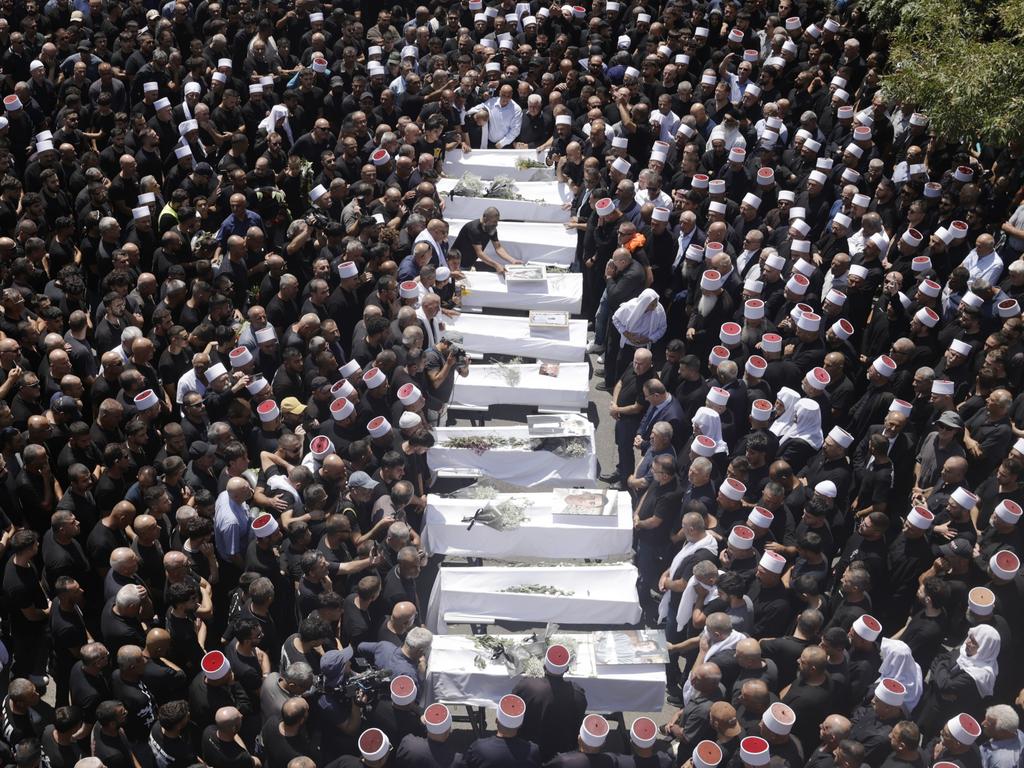


Ahed Bahar grew up loathing the Shiite Muslim militant groups that killed his father during Lebanon’s civil war. A Sunni Muslim who lives in a Palestinian refugee enclave on Beirut’s outskirts, Bahar now hangs the banner of the most powerful Shiite militants, Hezbollah, and its main state backer, Iran.